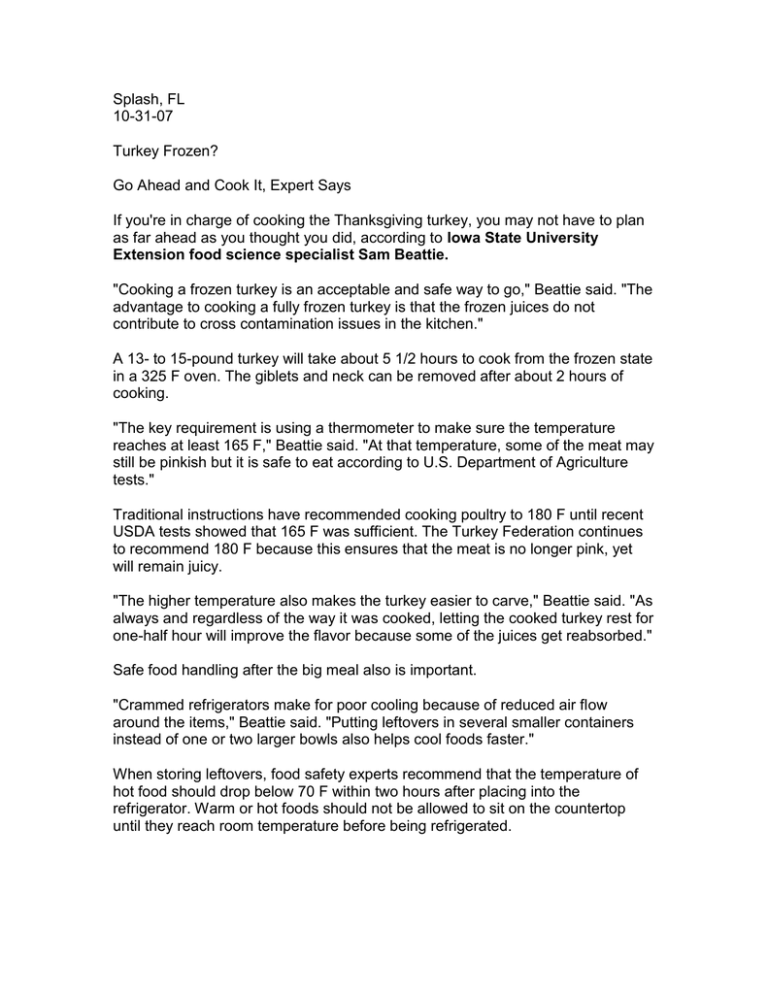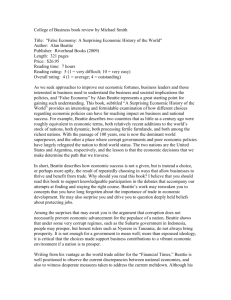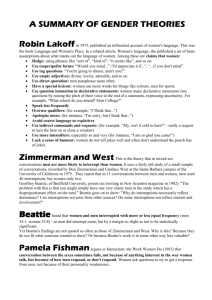Splash, FL 10-31-07 Turkey Frozen?
advertisement

Splash, FL 10-31-07 Turkey Frozen? Go Ahead and Cook It, Expert Says If you're in charge of cooking the Thanksgiving turkey, you may not have to plan as far ahead as you thought you did, according to Iowa State University Extension food science specialist Sam Beattie. "Cooking a frozen turkey is an acceptable and safe way to go," Beattie said. "The advantage to cooking a fully frozen turkey is that the frozen juices do not contribute to cross contamination issues in the kitchen." A 13- to 15-pound turkey will take about 5 1/2 hours to cook from the frozen state in a 325 F oven. The giblets and neck can be removed after about 2 hours of cooking. "The key requirement is using a thermometer to make sure the temperature reaches at least 165 F," Beattie said. "At that temperature, some of the meat may still be pinkish but it is safe to eat according to U.S. Department of Agriculture tests." Traditional instructions have recommended cooking poultry to 180 F until recent USDA tests showed that 165 F was sufficient. The Turkey Federation continues to recommend 180 F because this ensures that the meat is no longer pink, yet will remain juicy. "The higher temperature also makes the turkey easier to carve," Beattie said. "As always and regardless of the way it was cooked, letting the cooked turkey rest for one-half hour will improve the flavor because some of the juices get reabsorbed." Safe food handling after the big meal also is important. "Crammed refrigerators make for poor cooling because of reduced air flow around the items," Beattie said. "Putting leftovers in several smaller containers instead of one or two larger bowls also helps cool foods faster." When storing leftovers, food safety experts recommend that the temperature of hot food should drop below 70 F within two hours after placing into the refrigerator. Warm or hot foods should not be allowed to sit on the countertop until they reach room temperature before being refrigerated. "Ideally, the food should remain above 130 F until it is placed into the refrigerator and then it should cool to below 70 F in two hours and below 40 F in another 4 to 6 hours," Beattie said. "The major illness-causing bacteria in cooked meat and gravies slows its growth at around 70 F and does not reproduce well below this temperature," Beattie said. "Frequent handwashing as well as using paper towels also helps reduce the risk of foodborne illness spoiling your holiday festivities."



